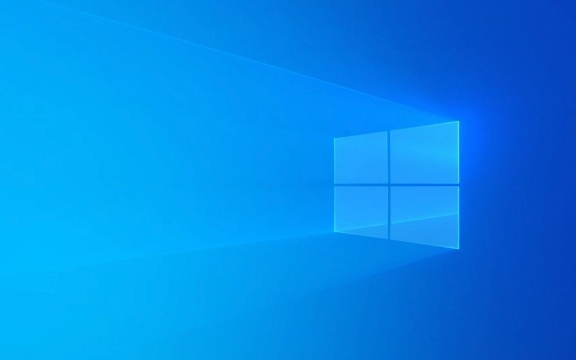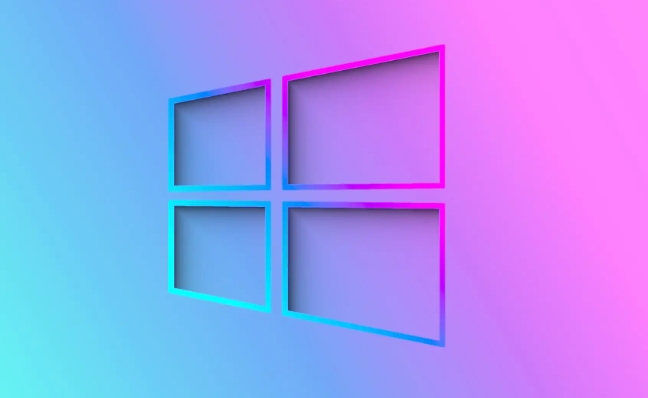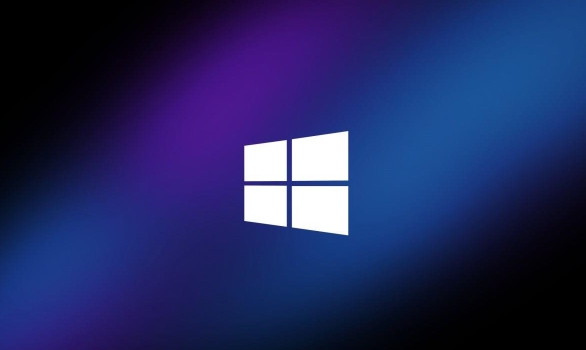Fixed: Windows Media Player Is Not Working
Run the built-in troubleshooter via Settings > System > Troubleshoot > Other troubleshooters > Playing Audio. 2. Re-register Windows Media Player by running regsvr32.exe /i /s wmplayer.dll in an elevated Command Prompt. 3. Reset the app by disabling and re-enabling Windows Media Player in Windows Features. 4. Check file compatibility and install necessary codecs or use a modern player like VLC. 5. Update audio drivers through Device Manager or the manufacturer’s website. 6. Clear the Media Player database by renaming the CurrentDatabase.wmdb file in the AppData folder. These steps resolve most issues related to startup, playback, and file compatibility, restoring basic functionality to Windows Media Player.

Windows Media Player not working can be frustrating, especially when you rely on it to play audio or video files. While it's an older media player, some users still prefer it for its simplicity. If you're encountering issues—such as the app not opening, files not playing, or errors popping up—here are several practical fixes to try.

1. Run the Built-in Troubleshooter
Windows includes a dedicated troubleshooter for playing audio that can automatically detect and fix common issues with Media Player.
- Press Windows I to open Settings.
- Go to System > Troubleshoot > Other troubleshooters.
- Find Playing Audio, click Run, and follow the on-screen instructions.
- Restart your computer after the process completes and test Windows Media Player again.
This step resolves many underlying audio or playback-related problems without manual intervention.

2. Re-register Windows Media Player
Sometimes, corrupted registry associations or misconfigured components prevent the app from launching or playing media.
You can re-register the player using PowerShell:

Right-click the Start button and select Windows Terminal (Admin) or Command Prompt (Admin).
-
Type the following command and press Enter:
regsvr32.exe /i /s wmplayer.dll
Wait a moment for the process to complete (no message means it worked).
Restart your PC and try opening the player again.
This resets key components of Windows Media Player behind the scenes.
3. Reset or Repair the App via Features Settings
Windows Media Player is a Windows feature that can be turned off and on again to reset its configuration.
- Open Control Panel > Programs > Programs and Features > Turn Windows features on or off.
- Uncheck Windows Media Player, click OK, then restart your computer.
- After rebooting, go back and re-enable the feature by checking the box again.
- Click OK and restart once more.
This process reinstalls the core components and often fixes playback or startup failures.
4. Check File Compatibility and Codecs
Even if the player opens, certain file types (like MKV, FLAC, or H.265) may not play due to missing codecs.
- Confirm the media format is supported: Windows Media Player works best with MP3, WMV, WMA, AVI, and MPEG-4 (with codec support).
- If a file doesn’t play, try opening it in a more modern player like VLC Media Player to confirm it’s not a file issue.
- Consider installing a codec pack (like K-Lite Codec Pack) if you frequently use unsupported formats—but do so carefully from trusted sources.
Alternatively, switch to a more versatile player if you often deal with diverse formats.
5. Update Audio Drivers
Playback issues are often caused by outdated or faulty audio drivers.
- Press Windows X and select Device Manager.
- Expand Sound, video and game controllers.
- Right-click your audio device (e.g., Realtek, Intel Audio) and choose Update driver.
- Select Search automatically for updated driver software.
- If no update is found, visit your PC manufacturer’s website to download the latest audio driver.
After updating, test audio in Media Player.
6. Clear Media Player Database
A corrupted library database can cause crashes or freezing.
- Close Windows Media Player completely.
- Navigate to:
C:\Users\YourUsername\AppData\Local\Microsoft\Media Player - Rename the *CurrentDatabase_.wmdb file to OldDatabase.wmdb** (or delete it).
- Reopen Windows Media Player—it will rebuild the database automatically.
Note: This removes your media library history but doesn’t affect actual files.
If none of the above work, consider using a modern alternative like VLC Media Player or Movies & TV (Windows 10/11), as Windows Media Player is largely deprecated. But for legacy use, these fixes usually restore basic functionality.
Basically, most issues stem from settings, drivers, or registration problems—not permanent damage. Try the steps in order, and chances are you’ll get it working again.
The above is the detailed content of Fixed: Windows Media Player Is Not Working. For more information, please follow other related articles on the PHP Chinese website!

Hot AI Tools

Undress AI Tool
Undress images for free

Undresser.AI Undress
AI-powered app for creating realistic nude photos

AI Clothes Remover
Online AI tool for removing clothes from photos.

Clothoff.io
AI clothes remover

Video Face Swap
Swap faces in any video effortlessly with our completely free AI face swap tool!

Hot Article

Hot Tools

Notepad++7.3.1
Easy-to-use and free code editor

SublimeText3 Chinese version
Chinese version, very easy to use

Zend Studio 13.0.1
Powerful PHP integrated development environment

Dreamweaver CS6
Visual web development tools

SublimeText3 Mac version
God-level code editing software (SublimeText3)
 How to Change ChatGPT Personality in Settings (Cynic, Robot, Listener, Nerd)
Aug 08, 2025 am 09:33 AM
How to Change ChatGPT Personality in Settings (Cynic, Robot, Listener, Nerd)
Aug 08, 2025 am 09:33 AM
Visit our disclosure page to learn how you can support MSPoweruser in maintaining the editorial team Read moreWant ChatGPT to reflect your mood or communication style? With the launch of ChatGPT 5, OpenAI introduces five distinct personalities – choo
 Best 123Movies Alternatives in 2025 (Free & Legal Streaming Options)
Jul 28, 2025 pm 12:02 PM
Best 123Movies Alternatives in 2025 (Free & Legal Streaming Options)
Jul 28, 2025 pm 12:02 PM
Read our disclosure page to find out how can you help MSPoweruser sustain the editorial team Read more123Movies used to be a go-to destination for free online movie streaming, but it came with serious downsides — from aggressive pop-up ads and potent
![How to Download and Use CapCut AI Video Editor on Windows PC [Full Guide]](https://img.php.cn/upload/article/001/246/273/175338289027886.jpg?x-oss-process=image/resize,m_fill,h_207,w_330) How to Download and Use CapCut AI Video Editor on Windows PC [Full Guide]
Jul 25, 2025 am 02:48 AM
How to Download and Use CapCut AI Video Editor on Windows PC [Full Guide]
Jul 25, 2025 am 02:48 AM
Read our disclosure page to learn how you can support the MSPoweruser editorial team. Read moreFor video creators, finding the right editing tool is crucial, and how to download, install, and use the CapCut AI video editor on Windows PC has become a
 How to change the system display language for all users in Windows
Jul 31, 2025 am 08:18 AM
How to change the system display language for all users in Windows
Jul 31, 2025 am 08:18 AM
InstallthedesiredlanguagepackviaSettings→Time&Language→Language®ion,ensuring"SetasmyWindowsdisplaylanguage"isselected.2.Changethesystemdisplaylanguageinthesamemenuandrestart.3.OpenControlPanel→Region→Administrativetab,click"
 How to manage AppLocker policies in Windows
Aug 02, 2025 am 12:13 AM
How to manage AppLocker policies in Windows
Aug 02, 2025 am 12:13 AM
EnableAppLockerviaGroupPolicybyopeninggpedit.msc,navigatingtoApplicationControlPolicies,creatingdefaultrules,andconfiguringruletypes;2.Createcustomrulesusingpublisher,path,orhashconditions,preferringpublisherrulesforsecurityandflexibility;3.Testrules
 Windows permanently stops system update
Aug 12, 2025 pm 08:24 PM
Windows permanently stops system update
Aug 12, 2025 pm 08:24 PM
Permanently stop Windows system updates: Use the Group Policy Editor: Double-click "Auto Update" settings and select "Disabled". Using the Registry Editor: Set the data value of "NoAutoUpdate" to "1". Advantages: Completely stop future updates and free up storage space. Disadvantages: Increased security risks, loss of functions, and incompatibility problems. Note: Use only after understanding the risks, you will be responsible for the consequences.
 How to manage notifications and actions in Windows
Aug 15, 2025 am 11:31 AM
How to manage notifications and actions in Windows
Aug 15, 2025 am 11:31 AM
You can manage notifications and actions in Windows through settings to stay focused and track important reminders. 1. Open "Settings" (Win I), enter "System>Notifications", and you can turn off notifications globally or manage notification permissions one by one, including banners, sounds and lock screen displays. 2. Select "Off", "Priority Only" or "Alarm Only" mode in "Focus Assist", and customize the priority apps and contacts. You can also set the automatic activation time or turn it on when projecting screens or playing games. 3. Open the Operation Center (Windows10) or Notification Center (Windows11) through the taskbar icon or swipe right, and clear all or individual notifications, and edit common shortcut buttons in "Quick Action". 4. Other prompts include closing notifications
 How to enable Hyper-V in Windows
Aug 04, 2025 am 12:53 AM
How to enable Hyper-V in Windows
Aug 04, 2025 am 12:53 AM
Hyper-VcanbeenabledonWindowsPro,Enterprise,orEducationeditionsbymeetingsystemrequirementsincluding64-bitCPUwithSLAT,VMMonitorModeExtension,BIOS/UEFIvirtualizationenabled,andatleast4GBRAM.2.EnableHyper-VviaWindowsFeaturesbyopeningoptionalfeatures,chec







